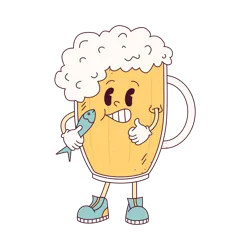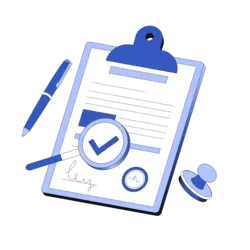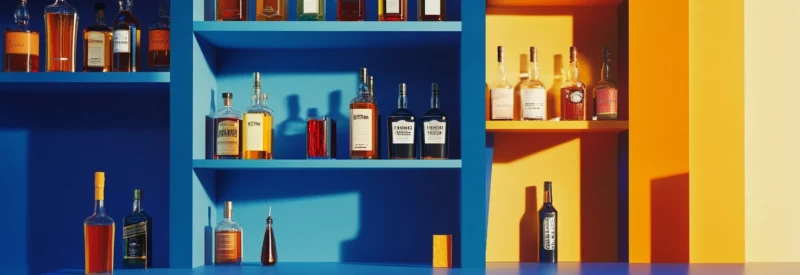It’s no secret that liquor is a profitable business in Pennsylvania. However, to thrive in this space legally, you need a liquor license in Pennsylvania. It’s imperative that you operate legally with the proper license.
Of course, starting a business in 2024 is no walk in the park, and the liquor industry is no exception. Still, many circumstantial details need to be considered when considering a career in the liquor sector. Margins on alcohol sales tend to be high, and customers have proven to be willing to spend money on a marked-up product, provided they get something for their dollar.
The road to a liquor license has its complications. While many folks don’t tend to think of alcohol as a controlled substance, the fact remains that merchants in the liquor space must comply with both local and federal laws to sell alcoholic beverages in their home state. These laws vary depending on the location of your business. Pennsylvania has stricter liquor laws than most North American territories, making acquiring a liquor license in the Keystone State costlier and more complicated than some merchants may be ready for.
Merchants hoping to sell beer, wine, and spirits in Pennsylvania will undoubtedly need to embark on an extensive, detail-laden process to achieve their goals in the liquor sector. They must also eventually settle on an appropriate payment processor, preferably one with an established history of working with high-risk businesses. Below, we’ll get into everything you need to know to start the process, including how to get a liquor license, how much it costs, and much more.
Types of Pennsylvania Liquor Licenses
The process of acquiring a liquor license comes riddled with questions. How much does a liquor license cost? Am I eligible for one? And, critically, what types of liquor licenses are available in Pennsylvania?
Pennsylvania offers five variations on the standard liquor license. Each is differentiated according to the merchant’s business. They are:
- Club and catering club liquor license
- Distributor liquor license
- Eating place liquor license
- Hotel liquor license
- Restaurant liquor license
The state’s Liquor Control Board dictates the requirements for securing a liquor license in Pennsylvania. The Pennsylvania Liquor Control Board refers to these licenses mentioned above by letter. For example, restaurant licenses are denoted by “R” licenses. Meanwhile, club and catering club licenses fall under “C” and “CC.” Elsewhere, distributor licenses are distinguished by the letter “D,” eating place licenses are “E,” and hotel licenses are associated with the letter “H.”
Three add-on permits are also available to merchants through the state’s Liquor Control Board. They are:
- Amusement permit (“AP”)
- Extended Hours Food permit (“EHF”)
- Sunday Sales permit (SS)
These permits technically fall under the Entertainment umbrella. They also cover the hours allowable for a standard eatery and whether an establishment can sell liquor on Sunday.

What type of liquor license do I need?
Speaking broadly, the kind of liquor license you apply for will correspond directly to the type of business you run. For instance, a restaurant owner will acquire an “R” license, whereas someone who works exclusively in the beer distribution game will need a “D” license.
Your establishment must provide food service to qualify for an “R” license. The location must also be at least 400 square feet and offer public seating for at least thirty individuals. Most restaurants and bars in Pennsylvania will need an “R” license, which allows for beer, liquor, and wine sales Monday through Saturday until 2:00 am.
Club and catering licenses are exclusive to clubs only. Clubs cannot sell liquor for consumption off-premises. However, they can stay open an hour later than most liquor establishments (3:00 am instead of 2:00 am).
Distributor licenses are for anyone operating a distributorship, such as a liquor store. These licenses permit businesses to sell large beer and liquor containers at standard costs. No on-site alcohol consumption is permitted at these locations.

An eating place license can be differentiated from a restaurant license if you think of “eating places” like bodegas or corner stores. An establishment hoping to acquire an eating place license must adhere to many of the same ordinances as a traditional restaurant, meaning seating for at least 30 people and functional food service. You cannot sell liquor or wine with an eating place license; you can, however, sell beer.
Hotel licenses are markedly similar to “R” licenses, save for the fact that the establishment in question has to offer up to twelve to fifty bathrooms for public use. An “H” license also requires the licensee to maintain a kitchen on the premises.
Liquor License Requirements for Pennsylvania
Once your business is set up with assistance from a high-risk processor, it’s time to get your personal and professional forms in order. Why? So, the Pennsylvania Liquor Control Board can perform a background check. There are numerous documentation forms and applications you’ll need to fill out, plus requirements that you’ll need to follow to the letter.
As with any detailed application procedure, this process can be confusing. If you have difficulty navigating the details, consider hiring the services of a trusted attorney or liquor license specialist.

Other necessary permits
A valid Pennsylvania health permit is a prerequisite for initiating the liquor license process in Pennsylvania. Merchants should also consider add-on permits, the most prominent of which are Sunday Sales or “SS” permits. With this license, your business can legally sell alcohol on Sundays.
Merchants are also encouraged to look into the Amusement Permit (“AP) or Extended Hours Food (EHF) permit options, respectively. The former allows venues to put on shows that feature dancing and live music with vocals. The latter will enable businesses to extend their food sales and service past 2:30 am. A typical example of this type of permit would be a 24-hour diner. Merchants who acquire an EHF permit must also possess a Sunday Sales permit.
Understanding Liquor Laws in Pennsylvania
Pennsylvania is known for its rigorous regulation of the sale and consumption of beer, wine, and spirits. As such, laws on the subject tend to be complex.
As outlined, you need a license to sell alcohol in Pennsylvania. Several external factors will determine what type of license you need. For instance, liquor establishments can only sell liquor on Sundays with a Sunday Sales permit.
There are many licenses to consider for these purposes. Navigating Pennsylvania liquor laws comes with its own set of complications. Merchants should prepare and research as much as possible to stay informed when making that critical decision.
How Much Does a Liquor License Cost in Pennsylvania?
Costs for a liquor license involve the cost of application and the price of the license itself. These factors vary depending on the type of license you apply for and where your business will operate—merchants applying for a liquor license pay for both the price of the application and the license itself. Details will vary depending on what kind of license you’re applying for and where you plan on operating your business.

When it comes to how to get a liquor license in Pennsylvania, you can expect to pay between $125 and $700 in application fees. Regarding the actual cost of the license, the total amount will be determined by the means you use to obtain said license. If you enter an auction hoping to secure a liquor license, you are looking at a minimum bid of at least $25,000. Since auctions are inherently volatile, the prices can oscillate suddenly and without warning. A liquor license can cost the merchant around $650,000 on the highest high ends.
Prices are open to negotiation if you buy a business and/or a liquor license from a pre-existing licensee. Merchants should expect transfer fees between $550 and $700.
How to Apply for a Liquor License in Pennsylvania
More so than in most states, getting a Pennsylvania liquor license can be challenging. You’ll also need a working merchant account and a means of accepting customer payment. There are many different licenses, some of which may not even be available in your location.
Why do you need a merchant account? In simple terms, you’ll need a way to accept customer payment. Merchant accounts are a must for any business owner, including those in the liquor sector. Setting up a merchant account will allow you to accept various payment options, thus affording you greater flexibility in the long run. For more information about merchant accounts, check out the video below:
A merchant’s best bet in terms of applying for a liquor license is to enter their information on the Pennsylvania Liquor Control Board’s “Buy Your License” page. The PLCB controls the approval, renewal, and officiation of all liquor licenses within state borders. Merchants are strongly advised to familiarize themselves with the basic requirements for obtaining a Pennsylvania liquor license. Some of these requirements include official state ID, mailing address, and business documentation.
Below, we’ll get into how to renew your liquor license in the state of Pennsylvania.
How to Renew Your Pennsylvania Liquor License

A silver lining for merchants who have found much of the process for obtaining a Pennsylvania liquor license to be tricky to navigate: renewing this license is substantially less arduous and time-consuming than the initial act of procuring it. Granted, you’ll still need to deal directly with the state’s liquor control board and pay an obligatory renewal fee.
Merchants must also provide updated tax information as part of their renewal process. If they have accumulated fines or penalties during their business ventures, they must settle these charges.
Getting a Beer and Wine License in Pennsylvania: Closing Thoughts
Whereas some states make things comparatively easier for merchants looking to enter the beer, wine, and spirits space, acquiring a liquor license in Pennsylvania takes a lot of work. We say this not to scare anyone off from embarking on this journey but to reiterate that the process requires persistence, patience, time, and money.
Moreover, parts of this procedure can be elaborate, bordering on opaque. We recommend hiring a lawyer or expert on liquor license laws to assist you in obtaining a liquor license. When in doubt: play it safe and prepare, prepare, prepare.
When considering your business needs, remember that you may need to partner with a merchant service provider specializing in assisting high-risk businesses. For liquor merchants, acquiring an alcohol merchant account is no joke. Restaurants are a complex industry, one where proper assistance is a necessity. When you’re struggling to keep your business afloat, your provider will be there for you, aiding and guiding you through each step of the process. Join forces with a reputable merchant service provider today and begin your journey today!
FAQs
How long does it take to get a liquor license in Pennsylvania?
The answer to how long it takes to acquire your liquor license varies by license type. Of course, all applicants are subject to a non-negotiable background check, which can be time-consuming. Once approved, merchants will need to notify the public, for at least 30 days, that they have submitted an application and are awaiting a response. Members of the general public can protest this development if they happen to object to it. Should this be the case, you can expect your application process to take even longer than it otherwise might under less adverse circumstances.
Do you need a liquor license to sell beer or wine in Pennsylvania?
Yes, you do. Technically, “liquor licenses” encompass sales of all alcoholic beverages, including wine and beer. Selling alcoholic beverages without an official liquor license violates state law.
Is it hard to get a liquor license in Pennsylvania?
The question of how to get your Pennsylvania liquor license has a great deal to do with where you live. Since the state employs a quota system that permits one license per 3,000 residents per county, specific locations may need more new licenses. Under such circumstances, merchants could buy a liquor license from a pre-existing business and transfer it over to themselves.
For better or worse, bureaucracy is par for the course in this process. Merchants must have their paperwork in order (or club documents if you’re applying on behalf of a club). Health licenses are also a required part of this process. Once the applicant has time allotted in their schedule for an interview, the state liquor board will inspect the location in question.
This process is overwhelming but by no means impossible. Familiarize yourself with the requirements, have your affairs in order, and you’ll be as prepared as you can possibly be.
How long does a Pennsylvania liquor license last?
In Pennsylvania, liquor merchants must renew their licenses annually. In the off-years, merchants can check for any additional validations they may need. As mentioned, details relative to renewal and scheduling dates will depend on the location of the operation in question.
How do I get a temporary or one-day liquor license in Pennsylvania?
Pennsylvania issues Special Occasion Permits that allow alcohol sales for nine consecutive or nonconsecutive days and for an additional ten straight days per calendar year. These permits are issued exclusively for fundraising events, and only certain groups can receive them.




